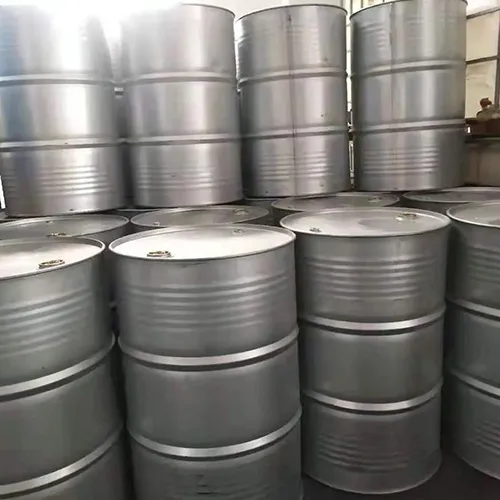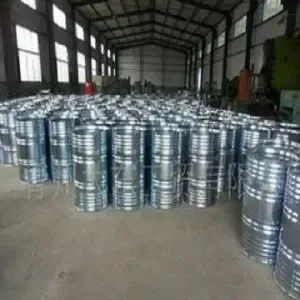Diaminobenzene and Its Versatile Uses in Various Industries
Diaminobenzene, también conocido como 1,4-diaminobenceno, is a vital aromatic amine compound widely used in several industries due to its unique chemical properties. This compound exists in different isomeric forms, including meta-diaminobenzene, orto-diaminobenceno, y para-diaminobenceno, each with distinct characteristics and applications. These isomers play significant roles in the production of various chemicals, polymers, and dyes, making them indispensable in industrial processes. In this article, we will explore the key uses and applications of diaminobenceno and its isomers across different sectors.

Understanding the Forms of Diaminobenzene
Diaminobenzene refers to a group of organic compounds consisting of a benzene ring with two amino groups (-NH2) attached at different positions. These compounds are primarily classified based on the relative positions of the amino groups on the benzene ring. Ortho-diaminobenzene (1,2-diaminobenzene): The amino groups are located adjacent to each other on the benzene ring. Meta-diaminobenzene (1,3-diaminobenzene): The amino groups are separated by one carbon atom in the benzene ring. Para-diaminobenzene (1,4-diaminobenzene): The amino groups are positioned opposite to each other on the benzene ring. Each isomer exhibits different reactivity, solubility, and stability, which directly influence their industrial applications.
Key Applications of Diaminobenzene Isomers
Para-diaminobenceno (1,4-diaminobenceno) is perhaps the most widely used isomer of diaminobenceno. It plays a crucial role in the production of dyes and pigments, especially in the synthesis of azo dyes. Azo dyes, which are commonly used in the textile and food industries, rely on para-diaminobenceno for their synthesis due to its strong reactivity with other organic compounds. These dyes are highly valued for their vivid colors and are found in a variety of products, including fabrics, paints, and cosmetics.
Orto-diaminobenceno, on the other hand, has specific applications in the manufacturing of pharmaceuticals and fine chemicals. It is used as an intermediate in the synthesis of various active pharmaceutical ingredients (APIs), especially those related to antioxidant and anti-inflammatory properties. Additionally, orto-diaminobenceno is used in the production of certain heterocyclic compounds, which have applications in drug discovery and development.
Meta-diaminobenceno is often used in the polymer industry. It serves as a precursor to a range of polymeric materials and polyurethanes. Due to its ability to form strong chemical bonds, meta-diaminobenzene is used in the production of coatings, adhesives, and other high-performance materials that require durability and resistance to heat and chemicals.
Diaminobenzene in the Dye and Pigment Industry
The dye and pigment industry is one of the largest consumers of diaminobenceno derivatives, particularly para-diaminobenceno. This isomer is integral to the manufacturing of azo dyes, which are among the most widely used synthetic dyes in the world. The chemical reactivity of para-diaminobenceno with other aromatic compounds enables the formation of a wide variety of vibrant and stable dyes. These dyes are not only used in the textile industry but also in plastics, leather, paper, and food coloring.
Además, diaminobenceno derivatives are utilized in the creation of pigments used in paints, coatings, and printing inks. The vividness and color stability of these pigments are crucial for achieving high-quality, long-lasting color results in industrial and consumer products.
Diaminobenzene in Polymer Synthesis
Diaminobenzene is also a key building block in the production of high-performance polymers. Meta-diaminobenceno, in particular, is used to produce polyurethanes—a type of polymer widely used in applications ranging from coatings and adhesives to insulation materials and elastomers. The amino groups in meta-diaminobenzene react with various isocyanates to form these versatile polymers.
In addition, para-diaminobenceno is used in the synthesis of polyimides and other high-temperature resistant polymers. These materials are essential in industries where durability and resistance to extreme conditions are required, such as in aerospace, electronics, and automotive applications.
Safety Considerations in Handling Diaminobenzene
Mientras diaminobenceno and its isomers are widely used in various industries, they also come with safety considerations due to their chemical reactivity. Exposure to these compounds can cause skin irritation, respiratory issues, and eye damage, particularly with prolonged or high-level exposure. As such, safety protocols should be strictly followed when handling these chemicals.
Workers should wear appropriate personal protective equipment (PPE), including gloves, goggles, and respiratory protection, to minimize the risk of exposure. In industrial settings, proper ventilation and the use of safety equipment such as fume hoods or local exhaust ventilation systems are essential for reducing inhalation risks.
Moreover, proper storage of diaminobenceno compounds is critical. These chemicals should be stored in tightly sealed containers, away from direct sunlight, heat, and incompatible substances, to prevent accidental reactions or degradation.
Para-diaminobenceno FAQs
What is the difference between para-diaminobenzene and meta-diaminobenzene?
Para-diaminobenzene (1,4-diaminobenzene) has the amino groups attached to opposite positions on the benzene ring, while meta-diaminobenzene (1,3-diaminobenzene) has the amino groups separated by one carbon atom. These structural differences result in different chemical reactivities, influencing their industrial applications.
How is para-diaminobenzene used in the textile industry?
Para-diaminobenceno is a key ingredient in the production of azo dyes, which are widely used in the textile industry for coloring fabrics. These dyes are known for their vivid colors and are essential in the production of various textiles, from garments to upholstery.
Can diaminobenzene be used in the pharmaceutical industry?
Yes, diaminobenceno, particularly orto-diaminobenceno, is used as an intermediate in the synthesis of various active pharmaceutical ingredients (APIs). It is involved in the production of drugs with antioxidant and anti-inflammatory properties, as well as other pharmaceutical compounds.
What are the environmental concerns with diaminobenzene derivatives?
The environmental concerns primarily relate to the potential toxicity of diaminobenzene derivatives. When not properly disposed of, these chemicals can contaminate water and soil, posing risks to aquatic life and ecosystems. Therefore, it is crucial to follow proper waste disposal and handling guidelines.
What is the role of meta-diaminobenzene in polymer production?
Meta-diaminobenceno plays a critical role in the production of polyurethanes and other high-performance polymers. These materials are used in various applications, including coatings, adhesives, and insulation, due to their durability, chemical resistance, and versatility.
Post time: May . 23, 2025 14:13


















